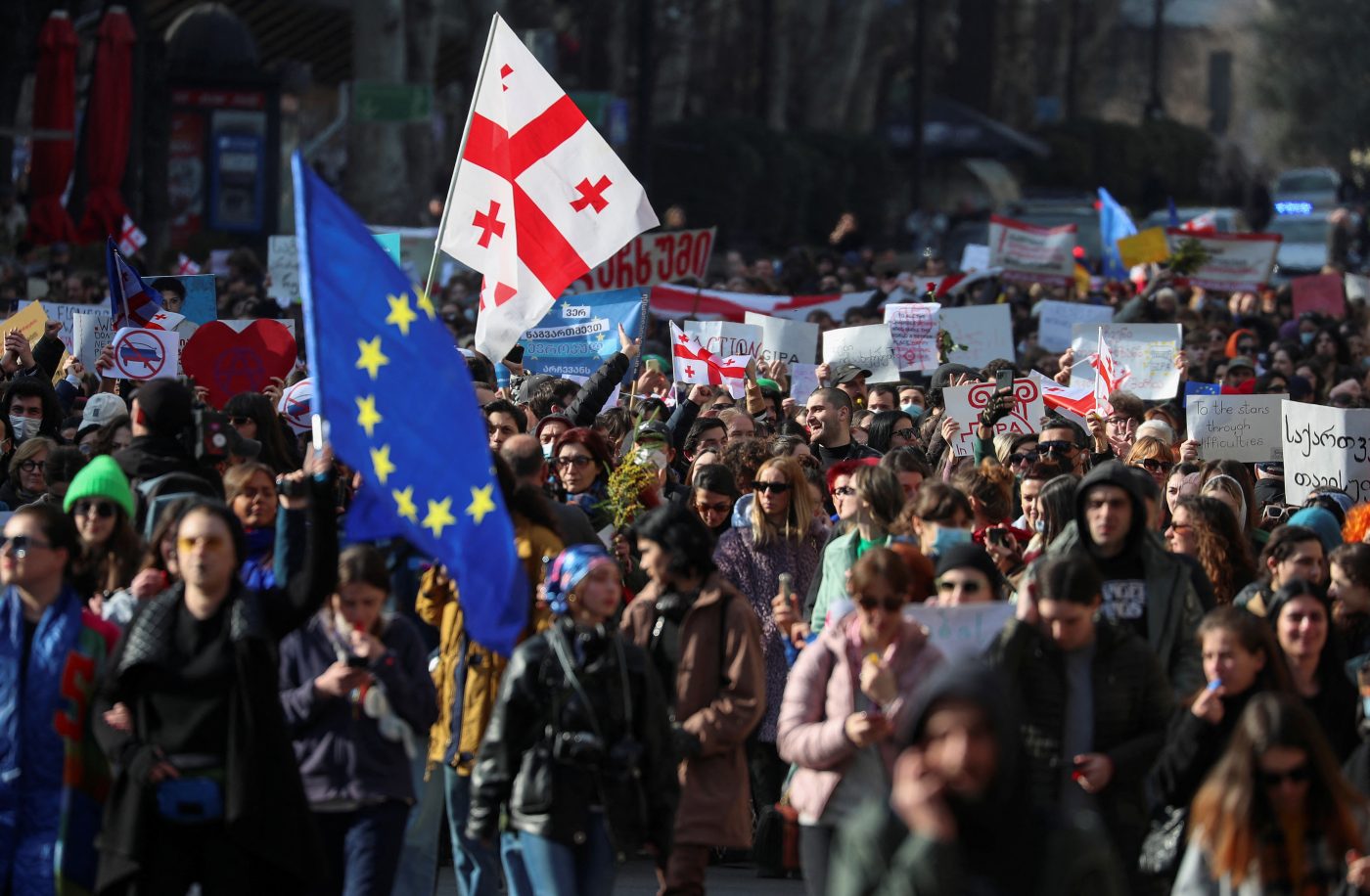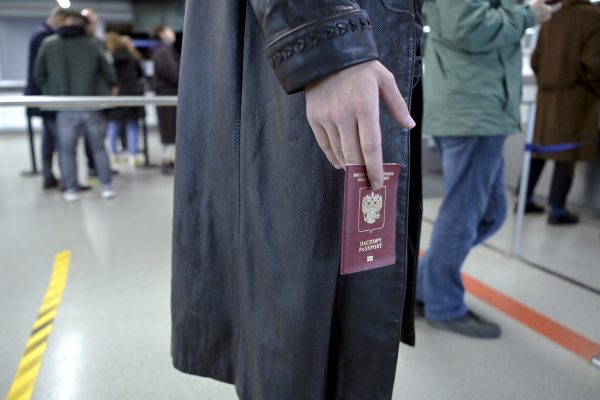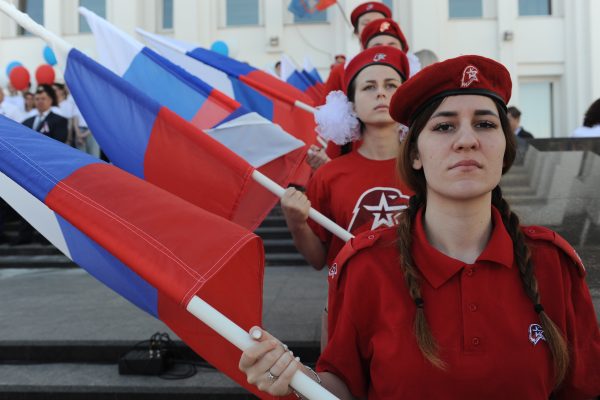After a long, hard think, the European Union (EU) announced on November 8 that it would recommend candidate membership status for Georgia. But the offer comes with nine key conditions that must be fulfilled for progress to be made. These serve as a reminder that the country still needs to carry out significant work before it can initiate accession talks.
One potentially major barrier may be next year’s elections. The ruling Georgian Dream party is thought likely to win and will likely continue its determination to chart a course independent — and sometimes openly hostile to — the West.
The party is accused by its opponents of taking Kremlin-friendly approaches, which they argue reflect the views of Georgian Dream’s billionaire founder and financier, Bidzina Ivanishvili. An attempt to mimic Russia’s notoriously repressive foreign agent law, for example, was only defeated after huge street protests and Western objections in March.
But while Georgian Dream may benefit from a fractious and divided opposition, it nonetheless confronts an overwhelming popular desire to join the EU and NATO (by 81% and 73% respectively.) Economic problems also abound; poverty is down from 70% but is still expected to be 49% this year, according to the International Monetary Fund (IMF.)
Another major issue remains the rule of law. The judiciary has traditionally been influenced by the political party in power ever since the country regained independence in the early 1990s. Despite judicial improvements, political influence on the system persists. The US has recognized this, leading to the sanctioning of four Georgian judges and a former prosecutor, Otar Partskhaladze, considered by the opposition to be a close associate of Ivanishvili.
No less important is the demand for closer alignment of foreign and security policy with the EU, where currently Georgia ranks lower than Ukraine or Moldova. This will be a major challenge since Georgia has initiated what may be provisionally called a multi-vector foreign policy, i.e. growing engagement with non-Western powers such as China.
Meanwhile, economic ties with Russia have been booming, despite the occupation of Georgian territory by Russia, and the killings and abductions of Georgian citizens. Trade in particular is an irritation to the West, with evidence of sanctions busting through Georgia. Ultimately that seems likely to complicate relations with Brussels and the US, but at the moment, the EU has few tools to limit the shift.
Nor will the overall level of tensions between Georgia and the EU dissipate overnight. Tbilisi will continue to disagree with much of what Brussels will be asking it to do. But the overall level of distrust should be significantly lower especially given the path to accession talks through the nine conditions is now clear.
True Georgia has been going through a difficult period since Russia began its all-out invasion of Ukraine in February 2022. The country has tried to navigate between outright support for Ukraine and caution toward its northern neighbor, which still occupies two areas of the country taken by force in the 2008 war.
The approach has not always worked. In the latest example, on November 6 Russian troops in occupied South Ossetia killed a Georgian citizen and abducted another causing a backlash from Tbilisi and its Western partners. Russia also plans a naval base in occupied Abkhazia, despite Georgian objections.
Internal political life has reached a boiling point, especially given the governing party’s attempts to impeach the Georgian president, Salome Zurabishvili. This failed, but the process was indicative of profound political divisions within the country’s political class.
Indeed, this reaches beyond the dispute between the president and the ruling party, to a highly divided opposition. The latter lacks not only financial resources but also a viable political agenda, as well as attractive political figures able to mobilize large segments of the population.
Given this background, an EU decision to refuse candidate membership would have seriously inflamed political life and might easily have degenerated into something more radical. The country’s newly agreed status will change the entire dynamic of political life, which may now become more stable despite simmering tensions.
Candidate status also has broader implications for European influence in the South Caucasus. First, the EU decision will push Georgia to limit its burgeoning relations with Eurasian states.
It is also critical for the EU, which is increasingly reliant on energy supplies from the South Caucasus and from other energy producers whose pipelines run through the region. Brussels’ engagement is also significant for regional stability and may encourage countries like Armenia, which is currently badly isolated.
Georgia has achieved what it believed was its due. It has been a slow process and there is much, much more to do. There is now a path to national success in achieving a dream shared by the vast majority of Georgians. Equally, mistakes now will have far greater costs.
Emil Avdaliani is a professor of international relations at European University in Tbilisi, Georgia, and a scholar of silk roads.

Reform and Resistance: Georgia’s Path to EU Candidacy
Despite some progress, the Georgian government has not implemented reforms addressing the most significant problems highlighted by the European Commission.
Europe’s Edge is CEPA’s online journal covering critical topics on the foreign policy docket across Europe and North America. All opinions expressed on Europe’s Edge are those of the author alone and may not represent those of the institutions they represent or the Center for European Policy Analysis. CEPA maintains a strict intellectual independence policy across all its projects and publications.

War Without End
Russia’s Shadow Warfare

CEPA Forum 2025
Explore CEPA’s flagship event.





